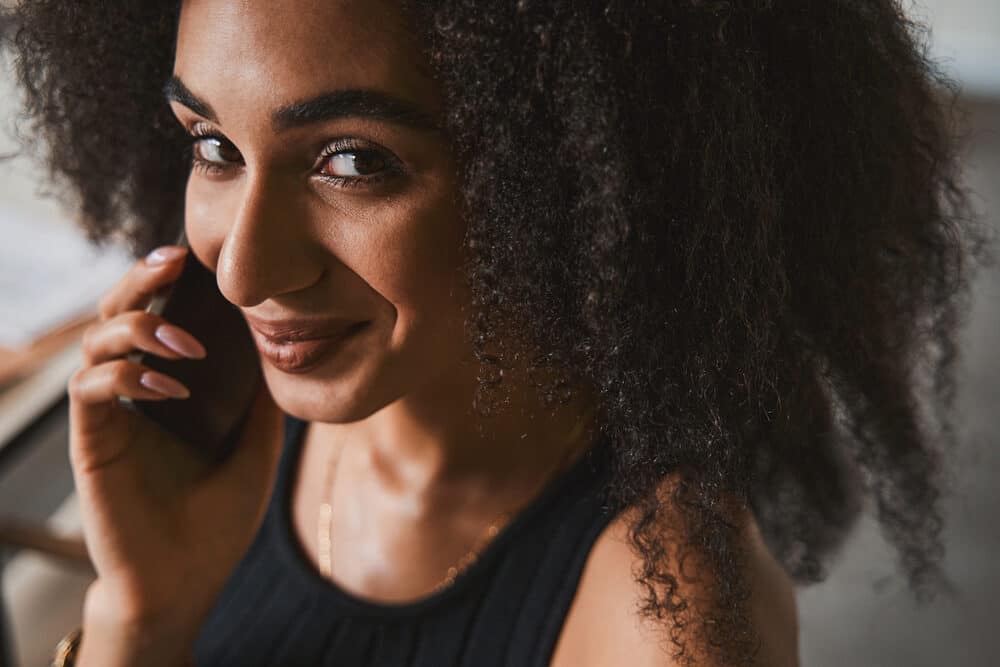
Many of us have heard claims that toners damage hair. Perhaps this is because once some people notice hair damage, they think back to the last chemical-containing product they used, which is oftentimes a toner.
But, at the same time, there are many factors that contribute to damage. Could the toner really be to blame? Are toners bad for your hair?
In this article, we’ll clear the confusion once and for all and let you know for sure whether toner damages hair. Let’s jump right into it!
Table of Contents
What Does Hair Toner Do?
Hair toner is a hair product formulated to get rid of unwanted tones that appear after lightening treatments. Purple-based toners remove yellow and gold hues while blue-based toners neutralize orange tones.
After using a toner, your hair color will look cleaner, more dimensional, and more natural. It’s important to know that toners do not completely change your hair color, but they do manipulate the shade to a small, yet noticeable degree.
Toners may need to be applied more than once to achieve the maximum level of brass removal.

Does Toner Damage Hair?
There are hundreds, if not thousands, of stylists, blogs, and articles that claim toners don't damage hair, and just as many that claim they do. So that leaves countless people looking for a reliable answer.
Here’s the deal; applying chemicals that change the overall structure of your hair can be damaging. Not every toner alters the internal structure of your hair, though.
So, we need to make a distinction.
Toners that are deposit-only and do not require the use of a hair developer are harmless. But others that are formulated to be mixed with a developer carry a risk of damage.
Any time a product opens up your hair cuticles, your hair could incur some damage. Once that cuticle is opened up, it loses strength and never lays down again as it did before, and that can cause hair issues ranging from frizz and tangles to dryness and breakage.

Consider What Your Hair Has Been Through
In addition, improperly using and abusing products can cause an adverse effect on your mane, leaving it prone to damage. After your hair has been put through the wringer with bleach or other lightening treatments, toner can push your hair right over the edge.
Vulnerable recently-processed hair is most likely to become damaged from using hair toner products.
Risk of Toner Damage Is Low in Most Cases
In general, hair toners with developer are safe when used the right way. But when they are used improperly or on compromised hair, they are more likely to cause damage.
Signs of Toner Damage

There are several toner damage signs that everyone should know about. Check out the following list to learn about all of them:
- Your hair is breaking off.
- Your hair won’t hold color.
- Your hair is dull or lifeless.
- Your hair is dry and brittle or frizzy.
- You have split ends.
- Your curls don’t bounce back.
- Your hair feels like straw.
Note: All of these damage signs can also be attributed to bleach or whatever hair lightening method you used before toning.
How To Use Toner Without Damaging Hair
Wondering how to keep toner damage at bay? In addition to following the instructions on your toner’s packaging, we encourage you to reference the below tips in this section.
Use the Right Developer
When selecting your toner, check to see what type of developer the manufacturer recommends. In most cases, you’ll be instructed to use a 10 or 20 volume developer.
A 10 volume developer deposits color without lifting the hair. It does not open your hair cuticles as much as higher-strength developers do.
So, the chance of it causing damage to your hair is low. However, the results from a toner with a 10 volume developer will not be long-lasting.
A 20 volume developer opens the cuticle more to let in more toner pigments. It’s best for extremely brassy hair. But, be careful, as 20 volume developers can damage the hair and leave it brittle, especially if your hair is already over-processed.
- What Does Hair Developer Do to Your Hair?
- How Long Should You Leave 20 Volume Bleach in Your Hair
- How Long Do You Keep 30 Volume Bleach in Your Hair
Avoid Cheap Toners
In the case of toners, you really do get what you pay for. While you don’t have to spend a fortune on your toner, you shouldn’t select your toner based on the lowest price.
After all, toning is a very important part of the coloring process, and not all toners are created equal. Some cheap toners contain chemicals that you won’t find in better quality products, chemicals that can leave your hair a dry, crunchy mess.
It's important to remember that the process of lightening hair can be incredibly damaging and the chemical composition of your hair products can contribute to that damage even more if you're not careful.

Don't Overprocess Bleached Hair
Overprocessing refers to applying a chemical toner (that needs a developer) to hair that’s been over-bleached or leaving the toner on your hair for longer than indicated on the packaging.
After you’ve applied the toner all over, set a timer. In most cases, you can rinse the toner away after about a half-hour.
Be Careful with Ammonia Based Toners
Ammonia-based toners are harsher than ammonia-free toners, including toning conditioners and shampoos. The chemicals in ammonia-based toners penetrate your hair shaft and alter your hair structure in order for the new color to settle into the hair shaft.
This makes them great for transforming super brassy hair. But these toners can still cause dry, brittle, and limp hair, just as hair color or bleach can.
In the interest of full disclosure, ammonia-based toners don’t usually contain a lot of ammonia. But the risks associated with ammonia are still there.
So, we recommend that you use ammonia-free toners if your hair is prone to damage. And before you use an ammonia-based toner, examine your hair.
If it shows any signs of damage, put off your toning session until after you’ve given your hair some TLC with extra deep conditioning sessions and moisturizing creams and oils.
The Pros and Cons of Hair Toners

The pros and cons of toner are numerous and it’s in your best interests to know about all of them. Below you’ll find a list of advantages and disadvantages of toners.
Pros
- They can be used to refresh previously colored hair. When your color starts to fade, or a little brassiness begins to peek through, toner can help restore your previous hair color and give you that salon-fresh look you had initially.
- Professional toners add dimension to one-note color jobs. So, if you’re looking to add some natural tonal variation to your hair, a toner can help. Keep in mind that toners target specific scenarios. So, someone with blonde hair usually wouldn't use the same toner as someone with dark brown hair.
- Toners are easy to use. If you follow the instructions on the packaging, you’ll get a great result in most cases.
- Toning shampoos and conditioners correct hair tone issues without any risk of significant hair damage. These products are great for anyone who’d rather pass up the sometimes-questionable ingredients found in chemical toners.
Cons
- Toners fade with each wash, whether you use them with 10 volume developer or 20 volume developer. So, you shouldn’t expect toning to be a one-and-done type thing. And every time you tone, there is a chance of causing breakage or dryness to your hair.
- Toners can be unpredictable, especially if you are inexperienced with them. Moreover, if you choose the wrong color or leave it on too long, you will not get the results you’re looking for.
- Can You Tone Your Hair Twice in One Day?
- Should You Tone Wet Hair?
- How to Rinse Toner Out of Hair
- Wella Color Charm Toner T10 Before and After
So, does toner damage hair? The answer, as frustrating as it may be, is that it depends. It depends on what type of toner you use and whether you use it correctly.
If you have additional questions about toners, we encourage you to reach out to your local colorist for advice. They will be able to give you information tailored to your unique hair type and color. We wish you the best!




